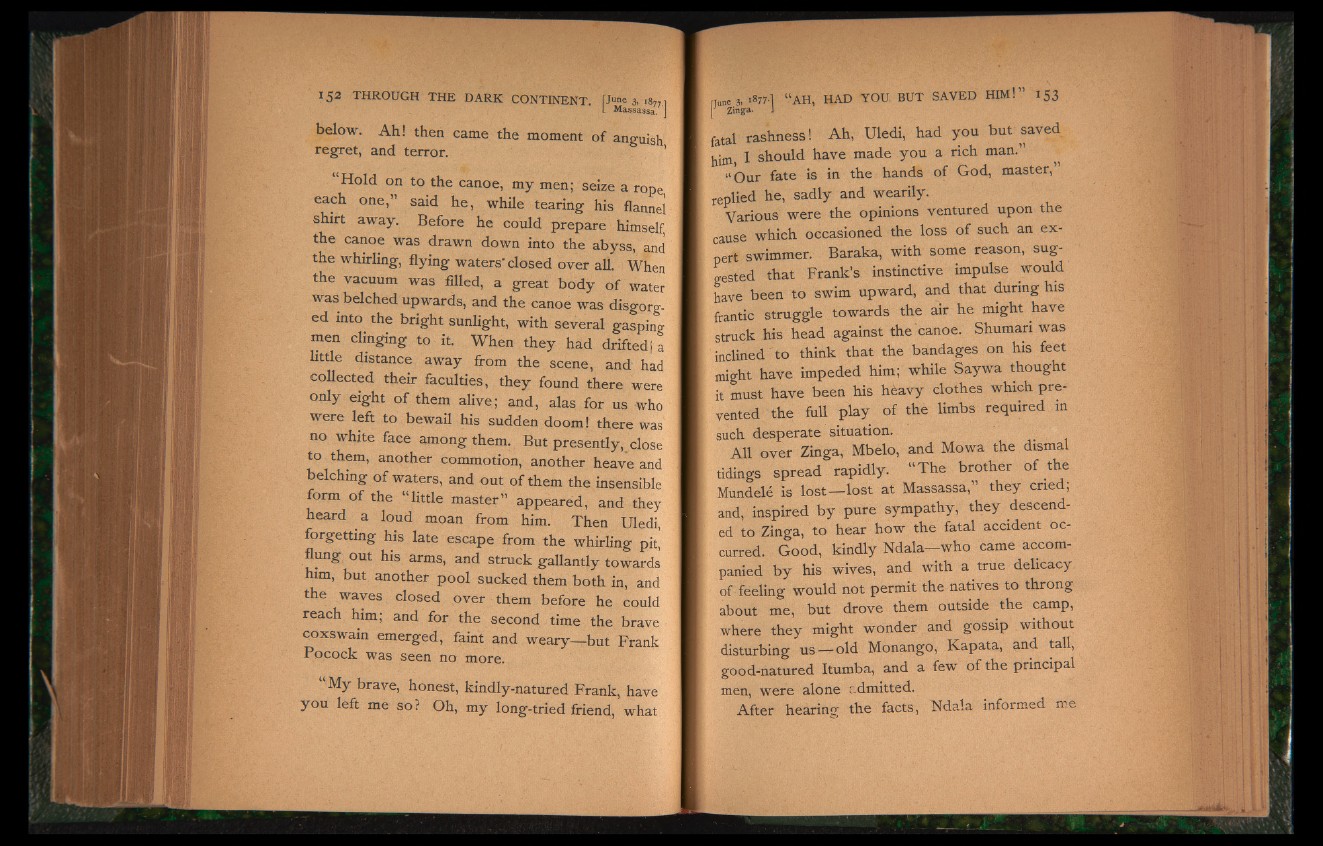
below. Ah! then came the moment of anguish
regret, and terror. ’
“Hold on to the canoe, my men; seize a rope
each one,” said he, while tearing his flannel
shirt away. Before he could prepare himself,
the canoe was drawn down into the abyss, and
the whirling, flying waters'closed over all. When
the vacuum was filled, a great body of water
was belched upwards, and the canoe was disgorged
into the bright sunlight, with several gasping
men clinging to it. When they had drifted j a
little distance away from the scene, and had
collected their faculties, they found there were
only eight of them alive; and, alas for us who
were left to bewail his sudden doom! there was
no white face among them. But presently^ close
to them, another commotion, another heave and
belching of waters, and out of them the insensible
form of the “ little master” appeared, and they
heard a loud moan from him. Then Uledi,
forgetting his late escape from the whirling pit,
flung out his arms, and struck gallantly towards
him, but another pool sucked them both in, and
the waves closed over them before he could
reach him; and for the second time the brave
coxswain emerged, faint and weary— but Frank
Pocock was seen no more.
My brave, honest, kindly-natured Frank, have
you left me so? Oh, my long-tried friend, what
flane 3, !877-l “ AH, HAD YOU BUT SAVED HIM!” 1 53
[ Zinga. J
fatal rashness! Ah, Uledi, had you but saved
him, I should have made you a rich man.” ^
“Our fate is in the hands of God, master,”
replied he, sadly and wearily.
Various were the opinions ventured upon the
cause which occasioned the loss of such an expert
swimmer. Baraka, with some reason, suggested
that Frank’s instinctive impulse would
have been to swim upward, and that during his
frantic struggle towards the air he might have
struck his head against the canoe. Shumari was
inclined to think that the bandages on his feet
might have impeded him; while Saywa thought
it must have been his heavy clothes which prevented
the full play of the limbs required in
such desperate situation.
All over Zinga, Mbelo, and Mowa the dismal
tidings spread rapidly. “The brother of the
Mundele is lost— lost at Massassa,” they cried;
and, inspired by pure sympathy, they descended
to Zinga, to hear how the fatal accident occurred.
Good, kindly Ndala— who came accompanied
by his wives, and with a true delicacy
of feeling would not permit the natives to throng
about me, but drove them outside the camp,
where they might wonder and gossip without
disturbing us — old Monango, Kapata, and tall,
good-natured Itumba, and a few of the principal
men, were alone admitted.
After hearing the facts, 'Ndala informed me